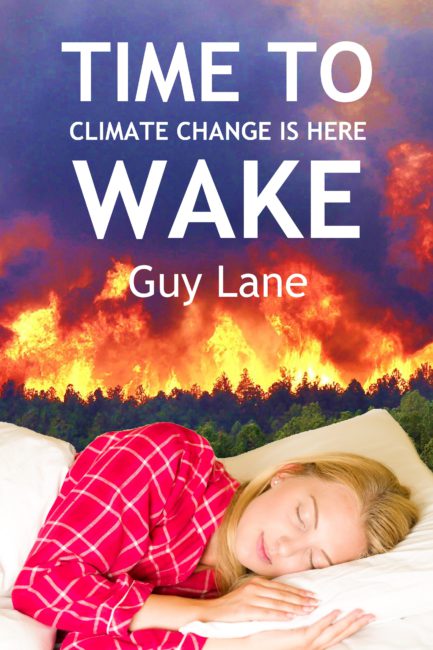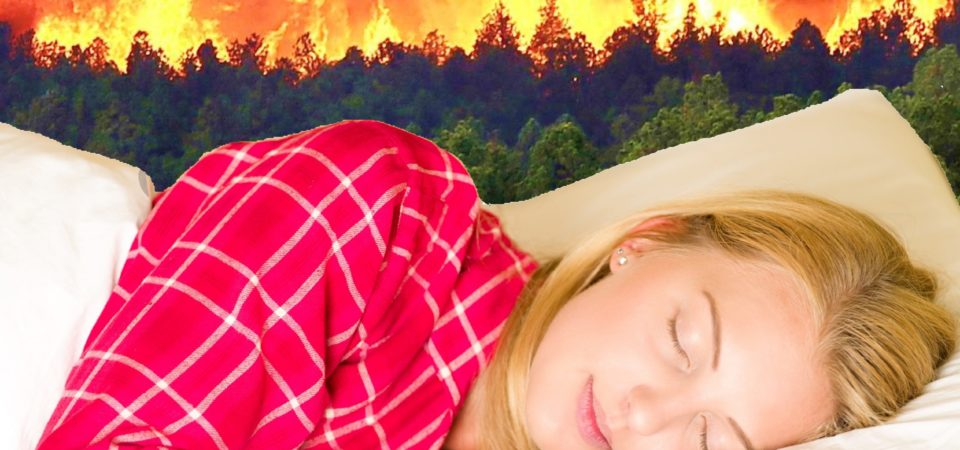 In the annals of climate change, November 2018 was a real kicker. In this month, the Camp Fire razed the Californian town called Paradise, rendering homeless 27,000 residents. This fire was spectacular not just for its ferocity and cruelty, but also because it immediately leapt to the top of the list of most damaging fires in Californian history. Notably, it replaced the Tubbs Fire of 2017 by tripling the number of structures lost, and quadrupling the acres burnt, and death toll.
In the annals of climate change, November 2018 was a real kicker. In this month, the Camp Fire razed the Californian town called Paradise, rendering homeless 27,000 residents. This fire was spectacular not just for its ferocity and cruelty, but also because it immediately leapt to the top of the list of most damaging fires in Californian history. Notably, it replaced the Tubbs Fire of 2017 by tripling the number of structures lost, and quadrupling the acres burnt, and death toll.
Devastating as the Camp Fire was, there were other climate change-fuelled tragedies playing out that month that were notable in other ways. You see, in November 2018, the rich, powerful and famous got their 15 minutes of climate change fame. Three separate incidents demonstrate the new vulnerability of the rich, powerful and famous.
Rich: the Italian marina town of Rapallo was assaulted by a storm so fierce that the seawall collapsed and the waves destroyed hundreds of luxury yachts to a price tag of 600 million Euros.
Powerful: Hurricane Michael sprung up on Florida so fast that it took the US Air Force by surprise, and they left behind 17 high-tech F22 fighter jets, with a combined price tag of $6 billion. Photos show the distinctive shape of the fighters amid the saltwater-drenched rubble of the Tyndall air base.
Famous: at the same time as the Camp fire was wreaking havoc on the every-day people of Paradise, the Woolsey Fire ripped through the celebrity suburbs of Malibu, forcing the mandatory evacuation of the entire city. Malibu is prime habitat of Hollywood A-listers and famous people of all ilk. None-other than Kim Kardashian, with her combined 170 million twitter and Instagram followers, was one of the evacuated. Needless to say she didn’t tweet about climate change.
When even the rich, power, and famous are getting hammered, it is increasingly apparent that climate change is not some future threat, but a clear and present danger playing-out in the real-time, right now. All the old books on fixing climate change need to be rewritten as the goal posts have changed. For example, back when I started in the climate change business 16 years ago, the word ‘mitigation’ used to mean a casual and orderly reduction of greenhouse emissions in five percent increments. Now, a new frame of reference, as advanced and bold as the situation calls for has been developed. Climate Restoration seeks to wind-back the climate to the 1900s, aiming for 300 ppm atmospheric CO2 by 2050. Doing that requires much more that just marginal reductions in carbon emissions.
One can conceive of four types of mitigation, Mitigation Missions that I have named: Refrain, Sequest, Chill, and Negate.
Refrain: stop emitting greenhouse gases through a transition to zero carbon economy.
Sequest: sequester excess CO2 from the atmosphere, something in the order of a trillion tons.
Chill: cool the overheated planet.
Negate: prevent the release of CO2 and methane from climate positive feedback loops.
Conceivably, if the world’s governments and businesses were focused on these Mitigation Missions, it might be possible to turn this big ship around before climate change really made a mess of things. Unfortunately, there is scant evidence of that happening, yet. The technology and resources are available, but the people in the highest positions of power prevent our governments from applying the necessary resources.
To understand this power dynamic, I have invented a conceptual beast, a monster that is responsible for the climate chaos. Drawing on maritime mythology, I introduce you to the Krakate, the Kraken of the climate. In the old sea-myth, the Kraken is a huge octopus that wrecks ships and kills sailors. The Krakate does the same to our planet and societies. Just as the Kraken had eight tentacles, so does the Krakate. These tentacles are named:
- fossil fuel companies
- fossil fuel service companies
- politicians
- the media that spruik fossil fuels
- fossil fuel lobbyists
- fossil friendly investors
- climate change deniers.
If you were counting, you’d see that there are actually seven tentacles on the list. The eighth tentacle is us. And by us, I mean you and I, mums and dads, the public. Why? Because we are the ones who feed the Krakate. Everything we buy is backed in some way by fossil fuels. So, every day, we empower the Krakate by feeding it.
While we are part of the Krakate, we have no choice but to fight it. However, going into battle against this awesome beast needs a steady hand and advice from a master. As the great military strategist Carl von Clausewitz says, the decision to do battle should be based on weighing-up the certainties of not doing battle, versus the uncertainties of going to battle. Using this frame, doing battle with the Krakate is imperative, because if we let the Krakate persist, it will deliver Business as Usual carbon emissions, the RCP 8.5 emissions pathway. In this scenario, the planet will soon cross some climate tipping point, and we will all slide into a rerun of the Permian Extinction that will kill-off all of humanity, the rich, poor, weak, powerful, famous and unknown, alike. The main difference between what the Krakate has set in motion and the Permian Extinction that drove extinct 90% of all species, is that we are doing it 100 time as fast. Let that sink in, while you sharpen your calamari knives.
Will we ever mount an effective assault against the Krakate? We haven’t yet. Ultimately, what holds Western People back from this battle is ourselves, our own mythology about good and bad, monsters and heroes. Inside us all, albeit to varying degrees, is a series of invisible lens through which we see the world. The big four of these lenses include: capitalism, consumerism, pop-culture and Christianity. Our annual cultural celebration called Christmas is the hyper-synergy of all the elements. Note, in the big four, the absence of any reference to nature, the biosphere, the Planetary Boundaries, the ocean or the atmosphere. Therein lies the problem. Western People have no cultural mythology that helps us see, let alone do battle with, the Krakate. We can’t see climate change for the burning trees.
If we humans are to live a long time on this planet, we need to adopt a cultural mythology that places us as part of the living skin on this planet. To help visualise this, I have created a frame of reference called Imperium vitae-planeta, or just Imperium, for short. Imperium is a single living organism comprising all other organisms, the ocean, atmosphere, and soil. We humans, like the whales and the trees, are cells within Imperium’s body. Just like cells in a human body, we all have roles to play to look after our own interests, and the interests of the host. Under the name Perium I map-out beliefs and practices that underpin a new cultural mythology. If adopted en-mass, this new mythology should help foster the Western People to do swift and successful battle with the Krakate, and put this climate change issue to rest, once and all.
A new non-fiction title by Guy Lane www.guylane.com/timetowake
Release Date: December, 2018 Paperback: 8″ x 5″ – 163 pages
Ebooks: kindle, epub and others
Available through: Smashwords, Kindle, Amazon, ibooks
Media Kit: See media kit including high resolution Head Shots, Biography, book cover and previous titles: http://www.guylane.com/media-kit
Interviews: Guy Lane is available for interview in person, by phone, skype or email.
Contact: Guy Lane – 0424 269 930 – guy.lane@seao2.com – skype: guyjasonlane
The views and opinions expressed through the MAHB Website are those of the contributing authors and do not necessarily reflect an official position of the MAHB. The MAHB aims to share a range of perspectives and welcomes the discussions that they prompt.
